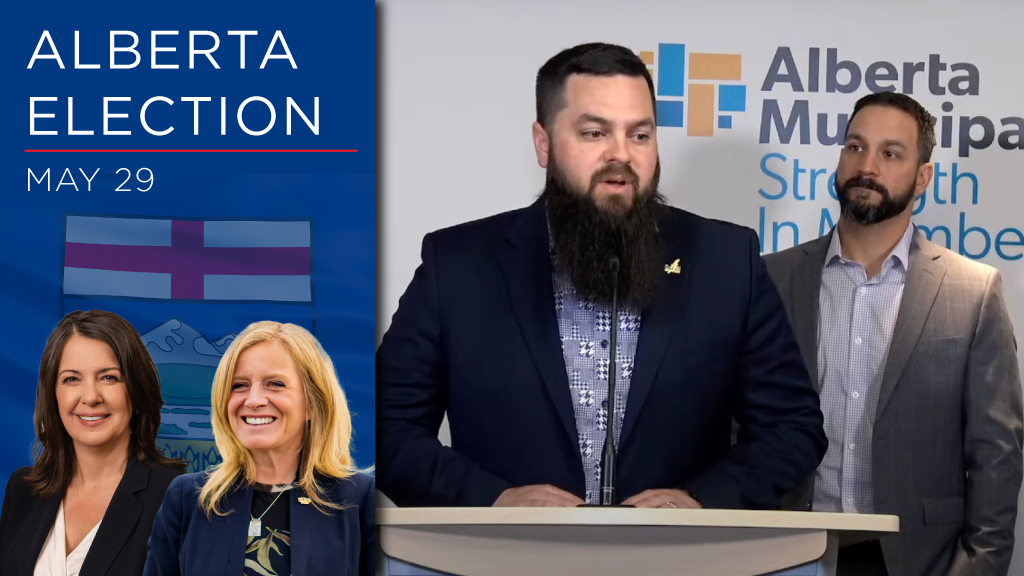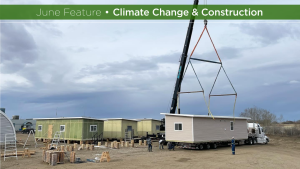Municipalities in Alberta are increasingly going into debt due to a $1 billion infrastructure funding shortfall from the provincial government.
Local leaders say they have not heard from either candidate about whether addressing the funding gap will be a priority for their government as the May 29 election draws near.
In a private media event on May 9, Alberta Municipalities vice-president and Mayor of the City of Wetaskiwin Tyler Gandam said the lack of infrastructure funding is not tied to a specific political party.
“It may come as a surprise to some Albertans when I say the Government of Alberta has chronically underfunded infrastructure in our provinces, summer villages, villages, towns, cities and specialized municipalities for the last 15 years,” Gandam said.
“It doesn’t matter which political party was in power during that time. All of them have underfunded infrastructure to some degree.”
In the recent 2023 budget, the United Conservative Party under Premier Danielle Smith allocated $722 million over three years for municipal infrastructure. As previously reported by the Journal of Commerce, Alberta Municipalities say that number falls about $1 billion short of what is needed to maintain the current level of infrastructure.
“That’s not factoring in population growth, which increases demand and puts strain on existing infrastructure,” Gandam said.
“Every year that goes by without addressing it adds another billion dollars to that deficit. Every year that goes by without addressing it costs local communities potential business investment and housing development.”
Gandam said his community alone is facing a $100 million infrastructure deficit and is currently financing a $54 million water treatment plant.
But financing big projects like wastewater treatment plants isn’t the only thing that Alberta Municipalities needs the extra funding for.
Gandam told reporters his town is facing underground infrastructure failures if it can’t close the funding gap.
“Those are probably the most costly repairs that have to be done if they’re done on an emergency basis. So, we try to look after those first; replacing what needs to be replaced long before they become an emergency situation,” he said.
Michael Yargeau, mayor of the Town of Penhold, said the community is struggling to take care of the most basic infrastructure.
“Where we suffer is it takes longer to fix a road in the community, it takes longer to plow a street, it takes longer for all those things to happen because we don’t have the capacity to do it in a timely fashion,” Yargeau said.
And communities are falling far behind their capacity to keep up with growth, digging deeper debt trenches to finance basic projects, he said.
Yargeau said Penhold took on a combined 35 years of debt to pay for a new water reservoir and recreation centre for its growing population. He said fire services and town operational capacities are severely limited by financial strain.
“The Town of Penhold Public Works building was purchased in the early 1970s when the village had a population of around 500 people. We’re in that same building today with a population of just under 4,000,” he said.
“The space does not meet today’s safe working conditions. We are in desperate need of a new facility to meet growth demands and provide the necessary services for our residents.”
Without adequate funding, municipalities have two choices: let infrastructure fail or crank up taxes.
One of the main reasons Alberta Municipality leaders are against a tax increase is they know the province has the funds to meet the $1.7 billion funding ask, they state.
This is because Alberta’s Municipalities submit approximately $2.5 billion per year to the provincial government through municipal property taxes.
“We know that there is money there and that they can be putting it into municipalities. So hopefully the government will see that,” said Yargeau
He said the rising cost of day-to-day operations, inflation and provincial law that limits municipal borrowing are all exacerbating the situation.
“Penhold is home to third and fourth generation families. Unfortunately, due to a lack of housing available to seniors, many end up having to move out of our community when it comes time to look for assisted care facilities.
“We need a government with a plan.”











Recent Comments